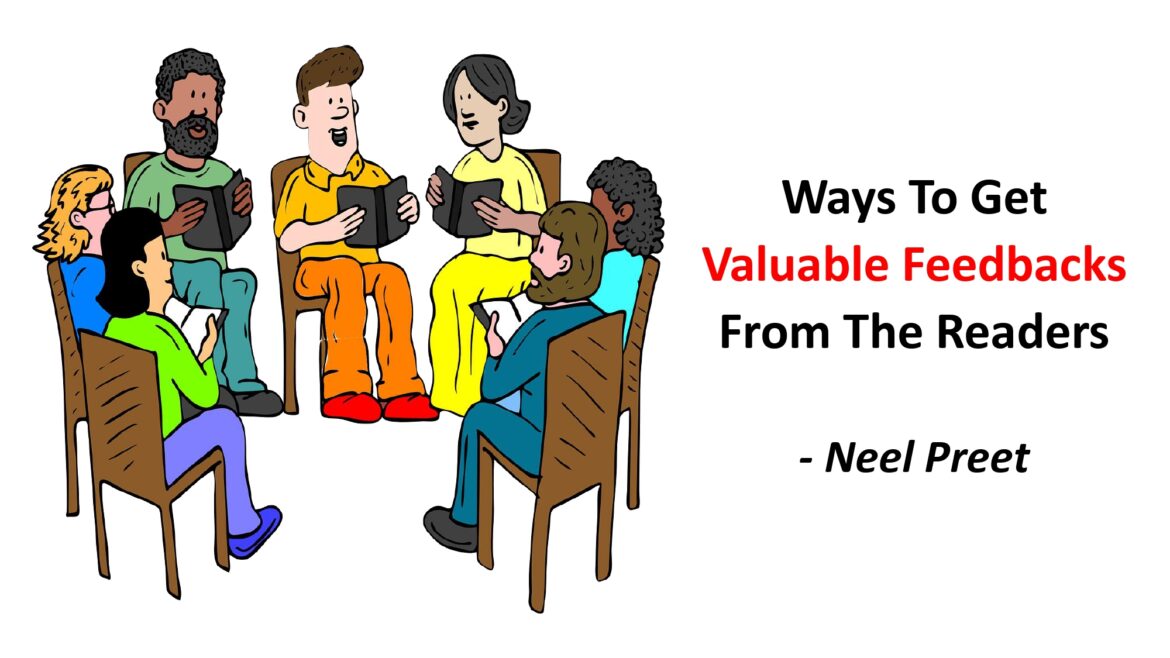Often times, we have discussed that getting feedbacks from the readers helps the writers in several aspects, many blogs on the internet also suggests the same. So today, in this writer-up we shall cover the various methods that shall help the writers in getting those vital feedbacks from the readers. Well, if an author fails in creating a great book then it is often pointed out that the author might not have taken the feedbacks from the readers. Interestingly, this is true too in many of the cases, as the readers tells the authors and the writers what were lacking in the writings and what were the extras in the overall writing. Therefore, taking surveys from the readers is a great way to make your writings better and effective!
However, you do not need any example of how an author failed when the author rejected the feedbacks from the readers. Therefore, let us keep our focus on the tips for getting valuable feedback from the readers. A good reader survey can help you improve your future marketing campaigns regardless of your previous success or failures. Surveys can also help you to put your focus in your writing in a manner that will help you reach more readers and turn casual fans into fanatics who cannot wait to read what you write next.
Doing a survey properly requires some planning, though. You cannot just send out a series of random questions and expect to get data that tells you exactly what you need to do next. You need to approach your survey the right way!
So, here are 3 Vital Tips to help you, as you prepare to survey your readers and they are as follows –
Tip 1) Craft Your Questions Properly: In order to craft the right questions, you need to have a sense of what kinds of answers you are looking for. Moreover, you want to get at those answers as quickly as possible, with the minimum number of questions and to do this, identify the goal of your survey. Some examples include:
• Learn why your marketing campaign failed
• Find out what readers want to read next
• Determine if readers have favourable or unfavourable opinions of certain characters/plot lines
• Identify the proper price point for your book
• Find out about readers’ buying behaviours
• Learn about reading/purchasing habits (how often readers buy books, what genres do they prefer, who are their favourite authors, etc.)
Once you have identified the precise goal of your survey, it is time to write your questions, keep the following tips in mind:
• Avoid ‘leading questions’ (do not give the ‘preferred’ answer away)
• Ask simple, direct questions that do not rely on jargon your readers might not understand
• Use quantitative, closed-ended questions that get you absolute answers (using check boxes, radio buttons, drop-down menus and rating scales)
Tip 2) Entice The Readers To Participate: Your survey will do you no good if you fail to get people to participate. Therefore, it is important that you make the survey worth readers’ time. One way to do this is by offering an incentive in exchange for a complete survey. Readers are much more likely to complete the survey if they know that something of value is waiting for them at the end. You can offer a sample chapter of an upcoming book, a short story or a character guide, among other things!
If you are unable to offer an incentive or you fear that offering an incentive will skew the survey results and make it apparent that the survey will require the minimum time commitment, and be sure to let readers know that their answers will have a direct impact on your work.
Tip 3) Analyse The Data And Move With The Plan: If you wrote well-crafted questions and got a sizable number of readers to respond, you are going to end up with some high-quality, actionable data. Your job now is to take the data seriously and respond appropriately. For example, if an overwhelming number of readers tell you that your book’s price was too high, do not second-guess them; experiment with lower prices!
On the other hand, if you find that readers are hardcore Facebook users, consider spending more of your marketing dollars on Facebook ads. Whether you are trying to determine why a marketing campaign went wrong or you are attempting to gauge interest in a possible plot line, taking your survey results seriously will help you move forward with confidence. Nevertheless, you have to trust the results.
Written By NEEL PREET – Author of the Books, Voice From The East (2016); Journey With Time Place And Circumstances (2018) & Indian Defence Files (2021).



